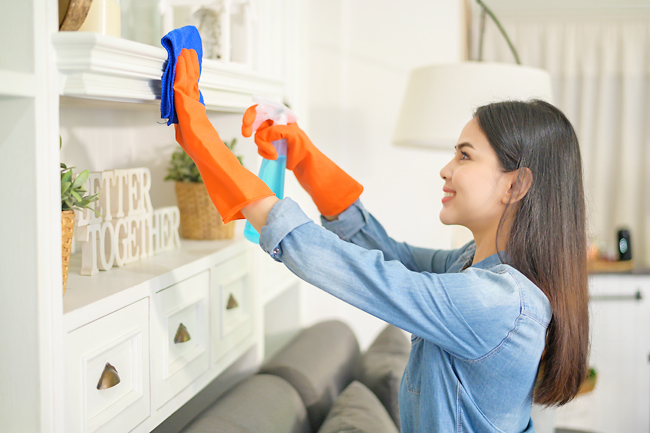AFP – Relaxing in a warm bath, engaging in physical activity, enjoying a good book, or practicing meditation are all effective methods for decompressing after a challenging day.
Nevertheless, according to a survey, there are individuals who prefer to multitask by finding solace in specific household tasks.
As global concern over mental health continues to grow, it has become the focus of extensive scientific research aimed at developing innovative approaches to address stress and anxiety.
Recent studies have shown that exercise, mindfulness, listening to music or playing a musical instrument, could all be part of the solution.
But are these recommendations really followed by the average person? Or do people find happiness, if not relaxation, elsewhere?
An eBay survey of 2,000 adults in the United Kingdom suggests that the simplest, and sometimes most unsuspected, daily activities can be effective ways to relax.


The survey reports that respondents allow themselves 10 moments of relaxation a day, with a third of people saying they have fewer stress-free moments today than they did three years ago.
One in two respondents said they would like to have more periods of calm in their lives.
When it comes to the everyday activities or household chores that respondents consider relaxing, making a cup of tea or coffee (49 per cent) tops the list as the most popular way to de-stress.
Much more surprisingly, almost a third of the sample (31 per cent) confided that watering plants and weeding are two effective ways to relax.
FROM HANGING OUT LAUNDRY TO VACUUMING
It’s hard to imagine that pastimes as simple and accessible as these could be such a source of satisfaction.
But they are, it seems, and some of the survey results are even more surprising.
More than a quarter of respondents (28 per cent) said that hanging out laundry is a moment of well-being that can help them relax, while 26 per cent are more inclined to mow the lawn, and 25 per cent to fold laundry or vacuum.
Other unusual activities on the ranking include ironing (23 per cent), going to the supermarket (20per cent), working on the car (18 per cent), administrative tasks (14 per cent), sorting trash (13 per cent), watching the washing machine run (13 per cent ), grating cheese (12 per cent), or mashing potatoes (10 per cent).
It’s worth noting that six per cent of respondents say they find building flat-pack furniture relaxing, despite this activity often being viewed as a source of stress.
While the survey may sound lighthearted, it reveals that more than half of respondents (56 per cent ) said they find household chores more relaxing than meditation or yoga.
This can be explained by the fact that respondents are looking for activities that require no thought (53 per cent ), which they consider more conducive to calm, but also by respondents’ view that activities that save them money are the most stress-free (37 per cent ).
Commenting on the findings, psychologist Dr Lisa Dorn said, “It is interesting to see from this research, how many of the simplest, seemingly mundane tasks in life, are actually calming and therapeutic.
“From a psychological perspective, people get into a zone, or mental state, in which they don’t need to think and are fully immersed in a feeling of energised focus and enjoyment.
“It’s as if action and consciousness melt together as people concentrate on the task rather than their worries and concerns.”



















































